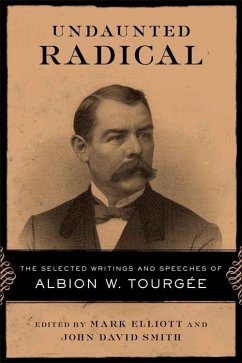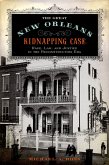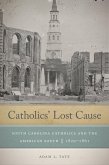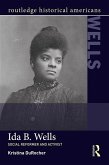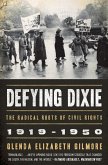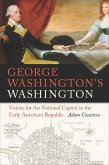A leading proponent of racial equality in the United States during the second half of the nineteenth century, Albion W. Tourgée (1838--1905) served as the most articulate spokesman of the radical wing of the Republican party, and he continued to advocate for its egalitarian ideals long after Reconstruction ended. Undaunted Radical presents Tourgée's most significant letters, speeches, and essays from the commencement of Radical Reconstruction through the bleak days of the era of Jim Crow.
An Ohioan by birth, Tourgée served in the Union army and afterwards moved to North Carolina, where he helped draft the 1868 state constitution. Within that and other documents he proposed free public education, the abolition of whipping posts, the end of property qualifications for jury duty and office holding, and the initiation of judicial reform and uniform taxation. Tourgée also served as a Republican-installed superior court judge, a position that brought him into increasing conflict with the Ku Klux Klan. In 1879, he published A Fool's Errand, a bestselling novel based on his Reconstruction experiences. Although now often overlooked, Tourgée in his lifetime offered a prominent voice of reason amid the segregation, disenfranchisement, lynching, racial propaganda, and mythologies about African Americans that haunted Reconstruction-era society and Gilded Age politics.
These thirty-four documents elaborate the reformer's opinions on the Reconstruction Amendments, his generation's racial and economic theories, the cultural politics of North-South reconciliation, the ethics of corporate capitalism, the Social Gospel movement, and the philosophical underpinnings of American democratic citizenship. Mark Elliott and John David Smith, among the foremost authorities on Tourgée, have brought these writings, including the previously unpublished oral arguments Tourgée delivered before the U.S. Supreme Court as Homer Plessy's lead attorney in Plessy v. Ferguson (1896), together in one volume.
The book also includes an introductory overview of Tourgée's life and an exhaustive bibliography of Tourgée's writings and related works, providing an essential collection for anyone studying Reconstruction and the early civil rights movement.
An Ohioan by birth, Tourgée served in the Union army and afterwards moved to North Carolina, where he helped draft the 1868 state constitution. Within that and other documents he proposed free public education, the abolition of whipping posts, the end of property qualifications for jury duty and office holding, and the initiation of judicial reform and uniform taxation. Tourgée also served as a Republican-installed superior court judge, a position that brought him into increasing conflict with the Ku Klux Klan. In 1879, he published A Fool's Errand, a bestselling novel based on his Reconstruction experiences. Although now often overlooked, Tourgée in his lifetime offered a prominent voice of reason amid the segregation, disenfranchisement, lynching, racial propaganda, and mythologies about African Americans that haunted Reconstruction-era society and Gilded Age politics.
These thirty-four documents elaborate the reformer's opinions on the Reconstruction Amendments, his generation's racial and economic theories, the cultural politics of North-South reconciliation, the ethics of corporate capitalism, the Social Gospel movement, and the philosophical underpinnings of American democratic citizenship. Mark Elliott and John David Smith, among the foremost authorities on Tourgée, have brought these writings, including the previously unpublished oral arguments Tourgée delivered before the U.S. Supreme Court as Homer Plessy's lead attorney in Plessy v. Ferguson (1896), together in one volume.
The book also includes an introductory overview of Tourgée's life and an exhaustive bibliography of Tourgée's writings and related works, providing an essential collection for anyone studying Reconstruction and the early civil rights movement.
Dieser Download kann aus rechtlichen Gründen nur mit Rechnungsadresse in A, D ausgeliefert werden.

